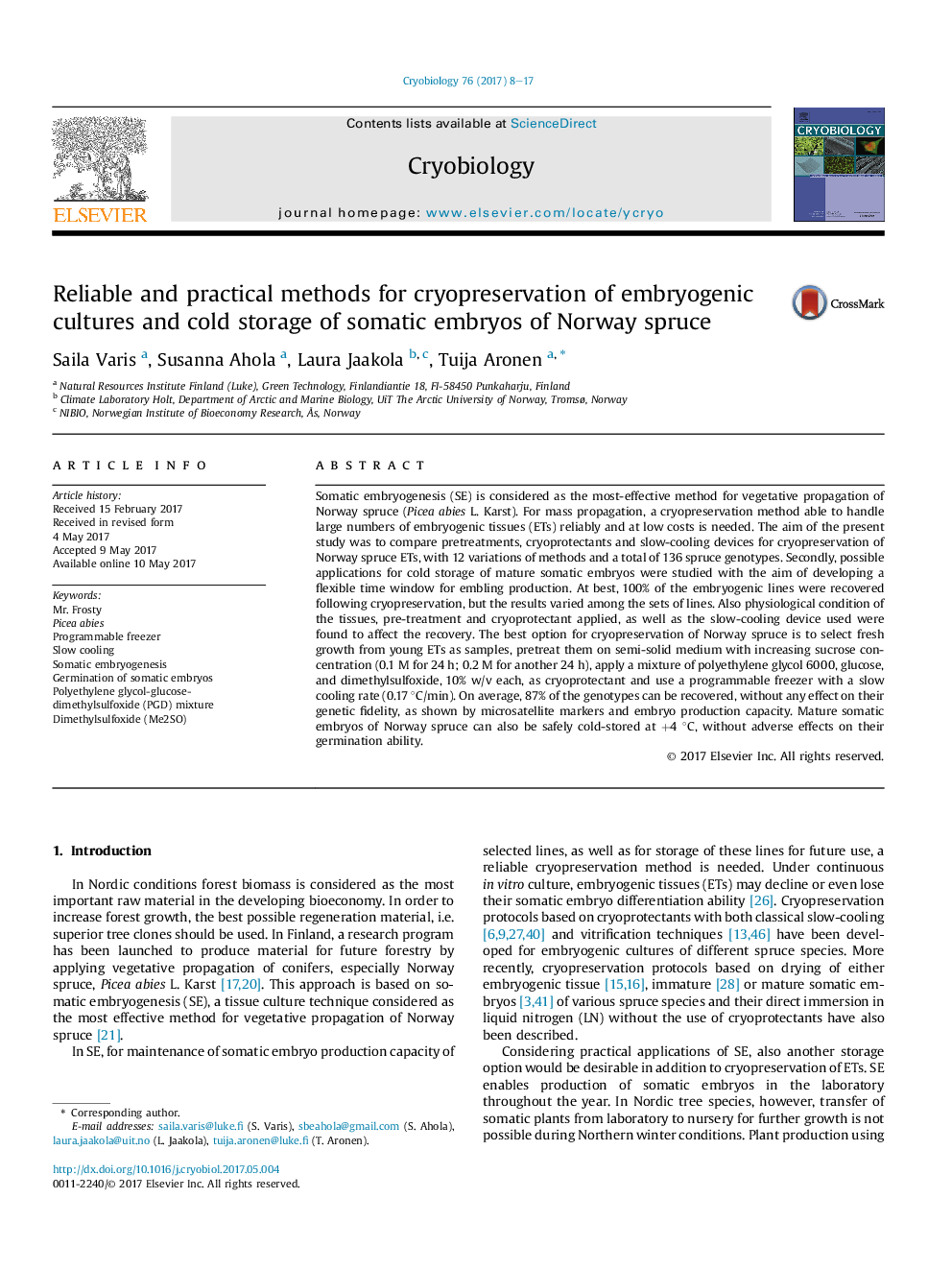| کد مقاله | کد نشریه | سال انتشار | مقاله انگلیسی | نسخه تمام متن |
|---|---|---|---|---|
| 5530890 | 1549443 | 2017 | 10 صفحه PDF | دانلود رایگان |
Somatic embryogenesis (SE) is considered as the most-effective method for vegetative propagation of Norway spruce (Picea abies L. Karst). For mass propagation, a cryopreservation method able to handle large numbers of embryogenic tissues (ETs) reliably and at low costs is needed. The aim of the present study was to compare pretreatments, cryoprotectants and slow-cooling devices for cryopreservation of Norway spruce ETs, with 12 variations of methods and a total of 136 spruce genotypes. Secondly, possible applications for cold storage of mature somatic embryos were studied with the aim of developing a flexible time window for embling production. At best, 100% of the embryogenic lines were recovered following cryopreservation, but the results varied among the sets of lines. Also physiological condition of the tissues, pre-treatment and cryoprotectant applied, as well as the slow-cooling device used were found to affect the recovery. The best option for cryopreservation of Norway spruce is to select fresh growth from young ETs as samples, pretreat them on semi-solid medium with increasing sucrose concentration (0.1 M for 24 h; 0.2 M for another 24 h), apply a mixture of polyethylene glycol 6000, glucose, and dimethylsulfoxide, 10% w/v each, as cryoprotectant and use a programmable freezer with a slow cooling rate (0.17 °C/min). On average, 87% of the genotypes can be recovered, without any effect on their genetic fidelity, as shown by microsatellite markers and embryo production capacity. Mature somatic embryos of Norway spruce can also be safely cold-stored at +4 °C, without adverse effects on their germination ability.
Journal: Cryobiology - Volume 76, June 2017, Pages 8-17
